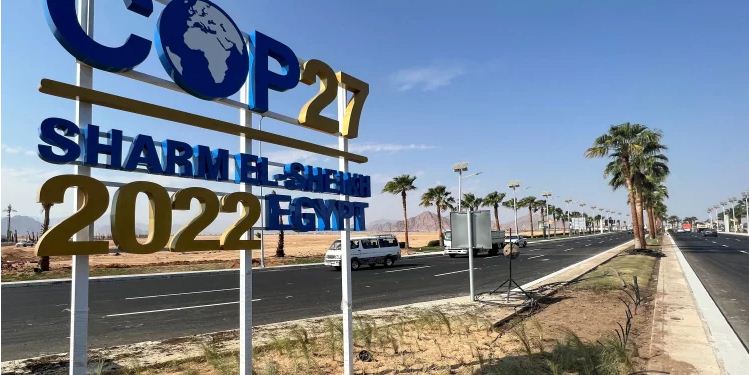The COP27 climate summit in Egypt has shown signs of hope amid frustration among scientists that the developed countries are not really serious about efforts to bring down the level of carbon emissions and the temperature. A happy development is the breakthrough agreement to provide “loss and damage” funding for vulnerable countries hit hard by climate disasters. “The outcome moves us forward,” said Simon Stiell, UN Climate Change Executive Secretary. Creating a specific fund for loss and damage marks an important point of progress as the issue is now included in the official agenda. Governments took the ground-breaking decision to formalise the funding arrangements to assist developing countries in responding to loss and damage. The underdeveloped countries have all along been at the receiving end of the greenhouse gas effects threatening the planet. The UN climate agency at the COP27 first brought out a draft that was to be the overarching agreement from the summit. But it was trashed by many environmentalists as a way for “climate hell.” The document repeated the goal from last year’s Glasgow climate pact “to accelerate measures towards the phase-down of unabated coal power and phase out and rationalise inefficient fossil fuel subsidies.”
The final document stresses the importance of making efforts at all levels to achieve the Paris Agreement temperature goal of limiting the increase in the global average temperature to 1.5 degree C above pre-industrial levels.
The question is whether the main polluters emitting the carbon gas are at all willing to check the rise of temperature. The issue has been flagged by 1,000 scientists from about 50 countries who signed an open letter in late October casting doubts about whether the goal of limiting global warming to 1.5 degree C is at all being taken seriously. The thought has been troubling the scientific community. The letter’s authors call on the community to ‘tell it like it is’ and declare that it is no longer defensible to publicly say that such a goal is still alive. Developing countries, especially small island nations, have continually repeated that this objective is a matter of life and death.
Scientists have rightly expressed great concern about a possible backtrack on these promises. Some large emerging countries like China, India and certain oil-producing countries are showing tell-tale signs that they would stick to the less ambitious goal set by the Paris Agreement. Greenpeace International’s COP27 head of delegation, Yeb Saño, reflected the general frustration when he said: “The draft text is an abdication of responsibility to capture the urgency expressed by many countries to see all oil and gas added to coal for at least a phase down. It is time to end the denial, the fossil fuel age must be brought to a rapid end.”
However, there are encouraging developments that may spur environmentalists to make emitters of greenhouse gases accountable. Brazilian President-elect Luiz Inácio Lula da Silva told cheering crowds at the COP27 conference that he would crack down on illegal deforestation in the Amazon, reinitiate relationships with countries that finance forest protection efforts and push to host an upcoming world climate summit in the rainforest. He unveiled a vision for management of the world’s largest rainforest. This is critical to fighting climate change. Lula’s position is in stark contrast to that of the outgoing President Jair Bolsonaro, whose administration witnessed some of the most rapid cutting of forests in decades. “There will be no climate security if the Amazon is not protected,” Lula asserted.
Bolsonaro, during his tenure, pushed development in his pro-business rhetoric and policies and made several moves that weakened protections to the Amazon forests. He appointed forest managers from the agribusiness sector, which opposes the creation of protected areas and clamours for legalisation of land grabbing. Lula has won the election in a dramatic way on an agenda that gives primacy to the preservation and protection of the rainforests.
An uphill task is ahead in tackling climate change. The voice of leaders such as Lula and the promise of collaborative work in this direction by the US President Joe Biden and China’s leader Xi Jinping may help
the cause of the planet.
